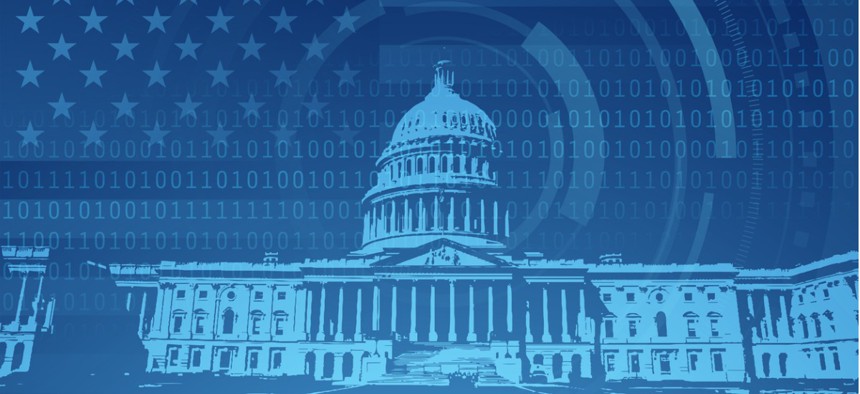Senate Committee Passes Major FISMA Changes—Including a New Definition of ‘Major Incident’

traffic_analyzer/istockphoto.com
The Homeland Security and Governmental Affairs Committee also passed an incident reporting bill with increased liability protections for companies, drawing praise from industry.
The Senate Homeland Security and Governmental Affairs Committee approved legislation that seeks to overhaul how federal agencies and government contractors report on cyberattacks and guidance for defending against them.
The committee on Wednesday cleared the Federal Information Security Modernization Act of 2021 along with a more controversial bill mandating private-sector reports of cyber incidents and ransomware payments.
Among much else, the first update to FISMA in seven years would charge the director of the Office of Management and Budget, in coordination with the National Cyber Director and the director of the Cybersecurity and Infrastructure Security Agency, to redefine the term “major incident” for the purpose of agencies’ reporting to CISA and Congress.
The attack on government contractor SolarWinds pushed the issue into the spotlight. Some affected agencies—such as Commerce—viewed the incident as “major” and reported it accordingly, while others—such as Health and Human Services—did not.
The legislation specifically directs the OMB director to include in that definition, “any incident the head of the agency determines is likely to have an impact on the national security, homeland security, or economic security of the United States.” The current framework for reporting cyber incidents, both in the public and private sectors, is centered more on the exposure of a certain amount of personally identifiable information, which has not been the main feature of SolarWinds or other recent hacks such as the ransomware attack on Colonial Pipeline. Agencies would have to report to congress and administration leaders like the directors of CISA and OMB on incidents they determine to be “major” within 72 hours, with subsequent reports on how they happened and other information. OMB would be required to provide guidance on deconflicting issues that emerge with contractors.
The new FISMA would also require the directors of OMB and CISA along with the National Cyber Director and others from the National Institute of Standards and Technology to create and implement a model for agencies to do risk-based cyber budgeting, assign a cyber advisor from CISA to each agency’s chief information officer, extend the Federal Acquisition Security Council through the end of 2026, and establish a pilot program where CISA offers agencies a security operations center as a service.
Before passing the private-sector focused incident reporting bill, the committee included two amendments from ranking member Rob Portman, R-Ohio, who sponsored it along with committee Chairman Gary Peters, D-Mich.
The first amendment would ensure any information companies share in the incident reports cannot be used in any lawsuits or by any regulatory agency.
“The Chamber of Commerce supports this legislation. One reason they support this legislation is that they believe that we are going to handle the liability issue in a balanced way,” Portman said, proposing the amendment. “I know this has been a controversial issue, and I want to thank Chairman Peters for working with us to try to get to something that, again, achieves what the business community expects.”
The second Portman amendment would exempt some smaller businesses from reporting on ransomware payments they make, something Peters suggested could be revisited during efforts to include the legislation in the next National Defense Authorization Act. Peters voted for the amendment after initially opposing it in “the spirit of moving forward.”
“We do know that there are issues that have been raised with the language in this legislation, but today's action is, is the first step, and what will hopefully be another step, which will be part of the National Defense Authorization because of the national security implications of this,” Peters said after an off-camera recess of the markup before the vote. “You have my commitment as chair, you have a commitment from the ranking member to work with members on both sides to address any, any issues, so that we have a good bipartisan product that deals with a significant threat we're facing.”
Also still in play as lawmakers consider including incident reporting mandates in the NDAA is legislation from Sen. Mark Warner, D-Va. Warner’s bill, unlike the Peters-Portman bill and a similar effort that is already included in the House-passed NDAA, would use fines to enforce companies’ reporting. While industry representatives oppose the use of fines, the administration’s top cyber officials, including CISA Director Jen Easterly, Federal Chief Information Security Officer Chris De Rusha and National Cyber Director Chris Inglis have all expressed support for that aspect of the Warner approach.
A spokesperson for his office told Nextgov: “Senator Warner remains committed to a solution that requires infrastructure owners and operators to report cyber intrusions in a timely fashion, and looks forward to continuing to work with his colleagues towards that goal.”






